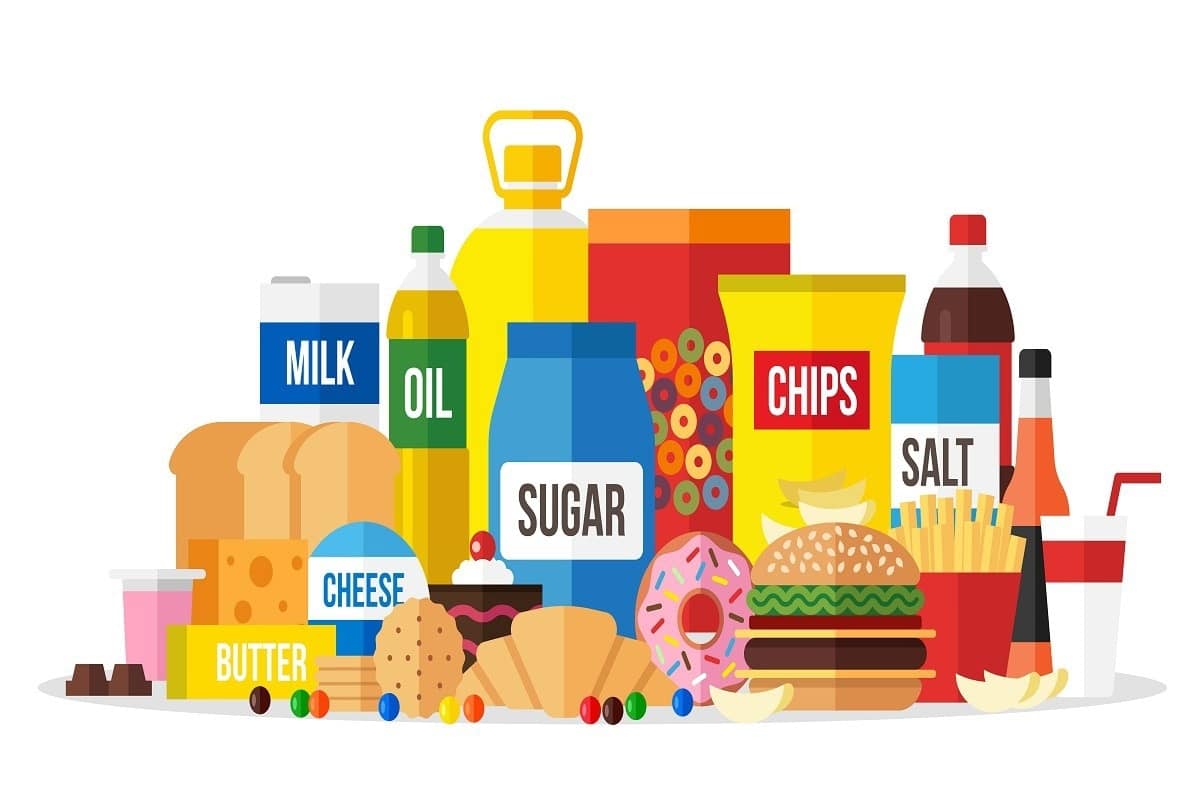
Wall paper
Ultra-processed foods are industrial products, ready to eat or ready to reheat, that are high in refined sugar, refined starch, and trans fats. A growing body of evidence indicates that ultra-processed foods increase the risk colorectal cancer By changing the composition and diversity of the intestinal flora and increasing the risk of obesity. However, ultra-processed foods currently make up 57% of the daily dietary intake of American adults.
In the current study, scientists evaluated the relationship between consumption of ultra-processed foods and the risk of colorectal cancer in American adults.
studying plan
Study analysis was performed using data obtained from three large prospective cohort studies in the United States. Overall, the study population included 46,341 men from the Health Professionals Follow-up Study (1986-2014) and 159,907 women nurses. Health Study (1986-2015).
The participants’ dietary intake was obtained by food frequency questionnaires every four years since enrollment. At the time of enrollment, none of the participants had been diagnosed with cancer. In addition, information on demographics, lifestyle factors, and medical conditions was collected from participants through questionnaires.
Important notes
A total of 1294 and 1922 cases of colorectal cancer were documented in male and female participants, respectively, during 24-28 years of follow-up.
Participants in the top quintile (highest data value) of ultra-processed food consumption were more likely to be smokers and to have a higher body mass index (BMI), higher lower alcohol consumption, lower physical activity, lower intake of dietary fiber, whole grains, vitamins, and minerals, Increase your intake of fats, refined sugar, and processed meat. These observations were similar in male and female participants.
The average daily intake of ultra-processed foods was 6.5 servings for women and 6.6 servings for men. Among both men and women, the foods most consumed were bread, highly processed breakfast products, fats, spices, sauces, packaged sweet snacks, and desserts.
Colorectal cancer risk
The risk of developing colorectal cancer was approximately 29% higher in men who ate the most ultra-processed foods compared to those who ate the least. However, such an association was not observed in women.
Given the different anatomical sites of origin of colorectal cancer, consumption of ultra-processed foods increased the risk of developing distant colon cancer by 72% in men. However, no such association was observed for proximal colon cancer and rectal cancer. These observations remained unchanged after adjusting for BMI and diet quality indices.
A significant reduction in the risk of colorectal cancer from ultra-processed foods was observed in men after adjusting food and nutrient intake. However, the risk of distal colorectal cancer remained significantly high.
When considering types of ultra-processed foods, higher consumption of ready-to-eat meat, poultry products, seafood, and sugar-sweetened beverages was positively associated with the risk of colorectal cancer in men.
In women, the risk of colorectal cancer was positively associated with increased consumption of ready-to-heat ready meals or mixed meals. In contrast, higher consumption of yogurt and dairy-based desserts was associated with a lower risk of colorectal cancer in women.
the importance of studying
Study results indicate that men who consume a large amount of ultra-processed foods have a higher risk of developing colorectal cancer, especially cancer of the distal colon. Although such an association has not been observed in women, high consumption of some overly processed foods may put them at greater risk. It is important to note that women who consume yogurt and dairy-based desserts may have a lower risk of developing colorectal cancer.

“Music guru. Incurable web practitioner. Thinker. Lifelong zombie junkie. Tv buff. Typical organizer. Evil beer scholar.”





More Stories
A large manufacturing project awaits space in the industrial zone
According to science, here are officially the two most beautiful first names in the world
Green space, 100% pedestrianized: DIX30 reinvents itself